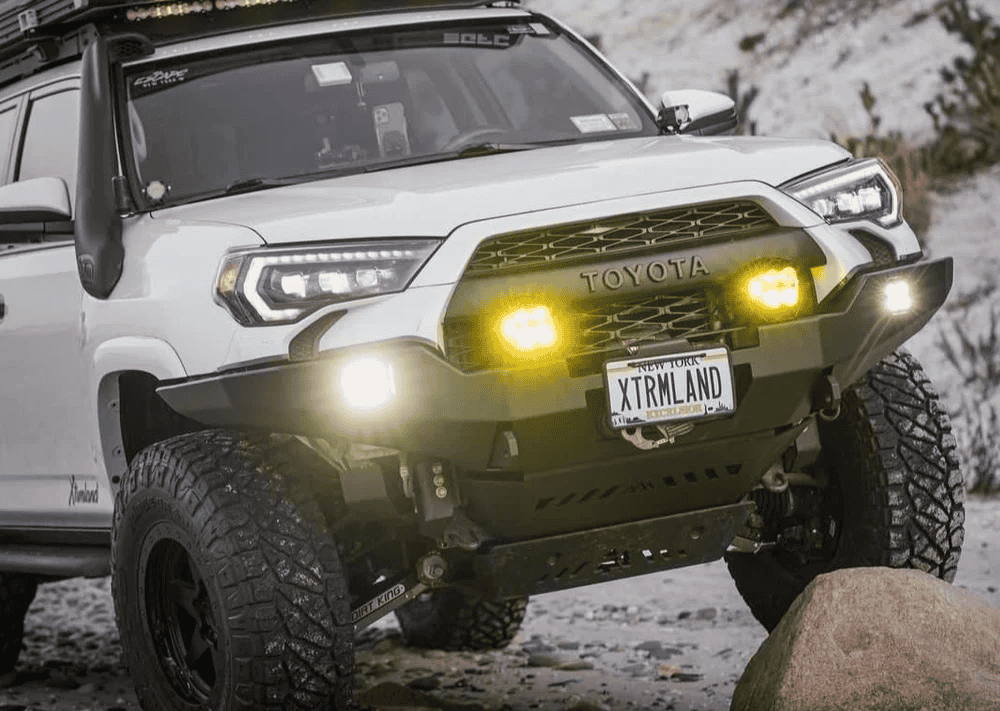Overland Vehicles

Overland travel puts reliability and self sufficiency first. Expedition truck campers combine sleeping quarters, water storage, off grid power, and secure gear space in a compact footprint. An overland camper truck aims to balance weight, ground clearance, and center of gravity so the vehicle tracks predictably on washboard, climbs loose grades, and copes with crosswinds. The core decision is fixed habitat versus modular habitat. A fixed habitat, such as a flatbed mounted camper or a chassis integrated habitat, maximizes rigidity and lowers flex points. A modular system, such as a slide in camper on trailer, improves adaptability for different trips but adds a tow connection and length.
Expedition truck campers are built around rough road duty. The frames, tie points, and cabinetry are designed to stay quiet and intact when the truck articulates. Compared to conventional RVs, tanks are better protected, wiring is tucked, and storage is optimized for dense loads like recovery gear and tools. On long tracks, dependable sealing, dust mitigation, and serviceable components carry more value than glamour features.
Some travelers prefer moving a truck camper from the bed to a purpose built trailer. A slide in truck camper on trailer can free the pickup bed for cargo, bikes, or a spare, and it allows the camper to be unhitched at camp. Success depends on three fundamentals. First, the camper center of gravity should sit forward of the trailer axle group by a safe margin noted by the camper maker. Second, a stout deck with bed rails or mounts prevents lateral walk. Third, rated chains, brakes, and an appropriate tongue weight keep the combination stable at speed.
There are several configurations. A slide in camper on utility trailer uses a boxed deck with stake pockets for tie downs and room for storage bins. A truck camper on flatbed trailer simplifies mounting with a continuous deck and adds space for fuel cans or a generator between camper and tongue. A truck camper on trailer with dual axles ups the load rating and braking surface, useful for longer trips or heavier water and battery banks. Each option should be matched to camper weight, tire size, and road surface expectations.
Weight ratings are non negotiable. Trailer gross rating, tire ratings, and hitch ratings must exceed the loaded camper weight with water, batteries, and gear. Tongue weight typically sits near ten to fifteen percent for stable towing. Balance the kit to avoid porpoising and side gust instability. Check lighting, width, and brake controller requirements where you travel. This guide is informational only and not legal advice. Always verify local rules for trailers and overhang.
Choosing a tow or truck platform shapes capability and comfort. A micro camper truck favors a compact footprint and nimble trail manners. It suits solo travelers and light gear loads with simple power needs. At the other end, a F350 overland camper pairs serious payload with longer wheelbase stability, ideal for reinforced campers and larger water storage. Expedition truck campers sit in between, ranging from composite shells to fully insulated monocoque structures that handle corrugations and minor frame twist. The best choice reflects trip length, climate, and the balance between on trail agility and on road endurance.
Storage drives the experience. A slide in camper utility bed adds lockable boxes low on the chassis which lowers mass and clears the interior. A slide in camper on utility trailer lets you keep dirty gear external and separated from living space. When the plan calls for more fuel, recovery tools, and bikes, a truck camper on flatbed trailer with integrated tie points can distribute heavy items without crowding the habitat.
Start with an honest weight budget. Weigh the empty camper, then add known items like water, batteries, recovery kit, and spares. Cross check axle loads and tongue weight at a scale and adjust placement to hit the target window. Confirm tire pressures for the actual load, not the sidewall maximum. On the road, listen for new noises, check tie downs at each stop, and verify brake temperatures by hand hover. A calm, neutral steering feel is a sign the geometry and weight balance are close.
Washboards, potholes, and whoops expose weak links. Slow down and avoid repeating hits at resonant speeds. Keep a healthy gap behind other vehicles to reduce rocks and dust ingestion. For extended dirt, payload balanced near the axles reduces pitching, and a well tuned shock package prevents fade. Expedition truck campers that keep heavy components low and centered reward the driver with less sway and safer braking.
If you prefer a complete build that is engineered from end to end, explore Overland rigs to see how a purpose designed system comes together. For tailored fabrication, mounting solutions for utility beds and flatbeds, and integrated power or lighting packages, our team provides Custom overland upfit services that support real world travel. Curious about working with a shop that listens first and builds second? Learn more at Why choose OZK Customs.
We design overland systems that match how you drive and where you camp. From a minimalist micro camper truck to a heavy duty F350 overland camper with a flatbed mounted habitat, we structure payload, power, storage, and suspension so the miles feel effortless. When a slide in camper on utility trailer or a slide in truck camper on trailer fits the mission, we focus on structure, securement, brake control, and balanced weight so the tow behaves on tarmac and dirt. Tell us your route, climate, and gear list, and we will map a build that passes the shakedown with confidence.
Ready to turn your truck into a road tested overland platform? OZK Customs designs and builds complete overland rigs, integrates power, mounts campers to flatbeds or utility beds, and dials suspension, storage, and lighting for real world travel. Tell us how you roam, and we will engineer the setup that fits your terrain, payload, and range. Start your build plan today.
ADDRESS:
6159 E Huntsville Rd, Fayetteville, AR 72701
PHONE:
(479) 326-9200
EMAIL:
info@ozkvans.com